Dashnor Kaloçi
The first part
Memorie.al publishes some archival documents with the logo “Top secret” recently released from the Archive of the Ministry of Foreign Affairs in Tirana and the Central State Archive, which belong to a period of time from (1969-1991), where there is a correspondence between the Ministry of Foreign Affairs with the Central Committee of the ALP and some Albanian diplomatic missions accredited in the West, such as Rome, Paris, etc., with telegrams, reports, information, orders, diplomatic notes, invitations, articles, newspapers, press leaflets, photographs, etc., where it is about Mother Teresa of Calcutta, the famous saint of Albanian origin, Gonxhe Bojaxhi, winner of the Nobel Peace Prize in 1979, which since 1969, through French channels and Italian Diplomats , I asked official Tirana to come to Albania, to her homeland, to visit her mother, Roza Bojaxhi, who at that time was 86 years old and ill, as well as her sister, Age, who lived in Tirana. All the complete documentation is made public for the first time by Memorie.al, where light is shed on all the charitable activity of the famous saint, to help the poor around the world and her extraordinary desire to help her compatriots in Albania. communist rule, as well as the total silence of official Tirana and the high communist leadership of that time, led by Ramiz Alia and Nexhmije Hoxha, who under various pretexts prevented her arrival in Albania and allowed it only in 1989, thanks to pressure great international!
Although all over the world she was known as Mother Teresa of Calcutta, the famous Saint Gonxhe Bojaxhi, winner of several international awards and the ‘Nobel’ Prize for Peace in 1979, never hid her Albanian origin, even demanding that from 1969, through French, Italian, diplomatic channels, etc., (where the highest heads of diplomacy of these two countries were engaged), to visit her mother and sister living in Tirana.
But although in terms of the constant request to visit her homeland, from time to time, some of the leading diplomats of these two western countries were engaged with whom official Tirana had diplomatic relations, the communist regime of Enver Hoxha, did not allow come and see. her mother who was in the last moments of her life and Age Bojaxhi, passed away with the great hostage who could no longer see her daughter, Gonxhen, whom she had not seen since she was a child, a time when she had left from home to become a nun.
But even after that, Mother Teresa of Calcutta, as she was known worldwide for her charitable missions to help the poor and needy everywhere, on all sides of the globe, not only did not get angry with those who did so, but let them see him. the mother, before she died, but instead, prayed for them and asked tirelessly, for years, that she come one day to the birthplace of her ancestors, and even lay a bouquet of flowers at her mother’s grave and her sister, who had already passed away.
But her demands, for two decades (from 1969 to 1989), were rejected on the most absurd pretext by the communist regime of Enver Hoxha and then his successors, Ramiz Alia and Nexhmije Hoxha, who cared for him and the people who accompanied him: a “Vatican agent” etc.!
For these and all her ordeal of more than two decades to come to Albania, where she thought to open Charities, as she had done in different countries of the world, as well as the real reason why Ramiz Alia and Nexhmije Hoxha, decided to accept in 1989, when she came to her homeland for the first time, she is mentioned in many archival documents, where there is a correspondence between the Ministry of Foreign Affairs in Tirana with the Central Committee of the ALP and some Albanian diplomatic missions. accredited in the West, such as Rome, Paris, etc., by telegrams, reports, information, ordinances, diplomatic notes, invitations, articles of world press newspapers, magazines, leaflets, photographs, etc., etc., which are published for the first time seen by Memorie.al., in the section of the historical file, starting from this number.
Letter from the Albanian Embassy in Paris to the Ministry of Foreign Affairs in Tirana, on August 29, 1969.
AMBASSADE DE LA REPUBLIQUE POPULAIRE D ALBANIE EN FRANCE
131 Rue de la Pompe 16
No.5 / 60 Prot.
Simple
Paris 29 August 1969
MINISTRY OF FOREIGN AFFAIRS
Tiranë
Attached we are sending you the Aide – Memory, dated August 29, 1969 that the French Ministry of Foreign Affairs handed over to the charge d’affaires of this embassy, the contents of which we have communicated to you before.
LOADED WITH WORK
Nos Qosja
ANNEXE
Roza BOJAXHIU née á PRIZREN le 18.4.1883
Agatha BOJAXHIU née á SKOPJE le 6.3.1905
Adresse: Ruga R. Perlat ND 5, ap. 4 TIRANA / Albanie
Nationalité: albanaise
Mére et sour de:
Mother Teresa, 54 A Lower Circular RD.
Calcutta 16 India
Daily information dated 4.10.1969
For Roza and Agatha Bojaxhiu, who are in the interest of the French Foreign Ministry and Minister Maurice Schuman himself:
The above-mentioned have Albanian citizenship and live on “Perlat Rexhepi” Street in Tirana, in a 2-room apartment and a kitchen. Roza is over 85 years old. Lately she is paralyzed and does not move out of bed at all. Her daughter Agatha, 54, is unmarried and works as a private seamstress at home.
They came to our country from Skopje, in 1930 and since then settled in Tirana. Roza’s son, who was Zog’s former officer, also came with them. In 1940 he went to Italy and never returned to Albania. He currently works as a pharmacist in an Italian city.
Both during the war and now, both have maintained an indifferent stance and have not been involved in politics. Agatha engages in some way in the problems of the neighborhood.
There are no other family members or relatives in Albania. They stay well in the neighborhood and maintain correct behavior. They live on the money Agatha earns from her job as a seamstress at home and with a little help sent by her brother from Italy, either on his behalf or on behalf of his other sister, who is a nun in India.
Letter from the Ministry of Foreign Affairs of France, sent to the Albanian Embassy in Paris, for Roza and Agatha Bojaxhiu
Tirana on 16.4.1970
DIRECTORATE IV
TOPIC: At the request of the French Ministry of Foreign Affairs, regarding Roza and Agatha Bojaxhiu.
THE EMBASSY OF R.P. OF ALBANIA
PARIS
The request made by the Ministry of Foreign Affairs of France, for Agatha and Roza Bojaxhiu to come there first as visitors and then, to be taken care of by the organization “Caritas International” and to settle with permanent residence in Vatican, cannot be considered. For this friend, Nos Qosja, met at the ministry, with the director of political affairs, who addressed this problem and verbally with the correct correctness and to tell him that the competent Albanian authorities have reviewed their request and it turns out that do not have received any request from the above to leave Albania.
Nor do they intend to go near their daughter in India. Comrade Nos, you also say that Roza is 86 years old and cannot get out of bed. In the end, he must tell them with the right tact, that we have taken all the necessary measures for all the citizens of the People’s Republic of Albania, so that they do not lack anything.
After the meeting they let us know their reaction to this issue.
Ministry
(Nesti Nase)
The secret telegram of the Albanian embassy in Paris addressed to the Ministry of Foreign Affairs in Tirana, regarding the interest of the French state for Gonxhe Bojaxhiu’s mother and sister, residing in Tirana.
Decoding
By: Paris
No. 348 Date: 7.3.1970
FOREIGN MINISTRY
In a meeting that Nosi held at the French Ministry of Foreign Affairs with the Deputy Director for Political Affairs, Jurgenser, he communicated our answer regarding the issue of the Bojaxhiu sisters. He said he would notify Maurice Schumann about it. And that he believes the minister will remain satisfied with the answer. Jurgenser then asked Nos about our relations with Yugoslavia and our position at the European Security Conference.
(Continued)
Decoding
By: Paris
No. 349 Date: second
After Nosi explained our position to Jurgensen, he told him that the official French position coincides with that of the Albanian government. France opposes the presence of American and Soviet armies in various European countries and their fleets in the Mediterranean. Even France thinks that this conference will not bring anything important.
(Continued)
Decoding
By: Paris
No. 350 Date: third
But given the fact that many European countries love this conference, it may not be against holding it. Jurgensen stressed one more thing: The decisions that the conference will take will leave the Warsaw Pact and Yugoslavia free to seek the help of other European states in the event of aggression (such as that of Czechoslovakia).
The report of the Albanian ambassador in Rome, Dashnor Dervishi, for the Minister of Foreign Affairs in Tirana, Reiz Malile, regarding the interest of prof. Arbëresh, Giuseppe Del Gaudio, who requested that Mother Teresa come to Albania, giving her biography.
AMBASCIATA 00199 Roma 1.6.1989
DELLA REPUBBLICA SOCIALISTA D”ALBANIA VIA.ASMARA, 9
IN ITALIA TEL.83.80.725
MINISTRY OF FOREIGN AFFAIRS
(Comrade Reis Malile)
Attached I am sending you a letter addressed to prof. Giuseppe Del Gaudio, an Arbëresh from Catanzaro, a friend of our country, who submits two requests:
- At the invitation of the League of Writers and Artists of Albania, to come to our country for a friendly visit, during the month of August, 20 people who participate in the Steering Council of the Writers’ Union of Arbëreshë, with their car.
- Madre Teresa’s desire is expressed, to make a private visit to Albania, “to kiss the Albanian land before she dies…”, accompanied by Giusepse Del Gaudio himself and her friend and companion, Gjergj Gjergji Gashi.
Madre Teresa’s desire to make this visit to Albania has come to us other times, through our acquaintances in the Arbëresh districts. As after them: Mother Teresa, throughout her activity has never spoken out against politics and our system in power, on the contrary, she constantly mentions with pride, the fact that she is from Albania; has actively, morally and materially contributed to the cause of Kosovo; the institution she leads and she herself has large financial sums, which she gives in the service of health centers for children and the elderly, worldwide, her visit to Albania, would serve as an obstacle for any possible propaganda campaign, against of human rights in Albania, which can be used to the detriment of our country, especially after her death, for not fulfilling this desire.
Ambassador
(Dashnor Dervishi)
THIRD DIRECTORY Year 1989
Information
File 1204
Prof. Giusepe Del Gaudio, an Arbëresh from Catanzaro, friend of our country and president of the League of Arbëresh Writers and Artists, in a letter to our ambassador in Rome, makes two requests:
- During the month of August, 20 people of the Steering Council of the Writers’ Union of Arbëresh, come to our country for a friendly visit, at the invitation of our League of Writers and Artists. They want to come with their car.
- The wish of Mother Teresa (Gonxhe Bojaxhiu) is expressed, to make a private visit to Albania, “to kiss our Albanian land before she dies…”, accompanied by Giusepe Del Gaudio himself and her friend, Gjergj Gjergji Gashi.
Our Embassy in Rome clarifies that the desire of G. Bojaxhiu to pay this visit to Albania, has come out other times through acquaintances in Arbëresh districts. According to them, throughout her activity, she has never spoken out against politics and our system in power, on the contrary, she constantly mentions with pride the fact that she is from Albania, has contributed actively, morally and materially, in support of the Kosovo Issue, the institution she leads, has large financial sums, which she gives in the service of health centers, for children and the elderly, worldwide, her visit to Albania, would serve as an obstacle to any possible propaganda on the ground against human rights in Albania, which can be used to the detriment of our country, especially after her death for not fulfilling this desire.
Regarding the visit of the group of Arbëresh writers as guests of the Writers’ League, we intend to get the opinion of the League and invite the chairman prof. Del Gaudio, with 2-3 close associates and not 20 people. Or come as a tourist group.
Regarding the request of Mother Teresa for a private visit to Albania, based on the opinion of the embassy, we think to be seen positively.
BIOGRAPHY OF MOTHER THERESA
Year 1989
File 1204
(Anjezë Gonxhe Bojaxhi)
Mother Teresa was born on August 27, 1910 in the Macedonian city of Skopje, which at that time was under the rule of the Ottoman Empire. She was the daughter of an Albanian villager and her maiden name was Anjeze Gonxhe Bojaxhiu. Encouraged by the missionary visit of a Catholic priest from the Calcutta missionary center to Skopje Elementary School in 1922, she decided to devote herself to helping the poor. She chose India as her field of work and through language learning, prepared for her next activity.
In 1928, she entered the Loretto Sisters Convent in Rathfarnham, near Dublin. After a few months, she was sent to Darjeeling to complete her education as a nun. There she received her education as a geography teacher. There, in the same year, she took the religious oath. In 1929, she was sent to St. Mary High School in Calcutta, where she first worked as a geography teacher and later as a principal. After the division of the Indian subcontinent into two states, India and Pakistan, refugee columns flooded into Calcutta in East Pakistan (today Bangladesh). It was at this time, during a train journey to Darjeeling that she experienced what she described as “her experience in Damascus”.
Seeing the suffering, first and foremost, of the children, she sent a prayer to the Vatican asking them that instead of teaching adult girls, she might work in the slums of Calcutta. She received approval in 1948 and Mother Teresa, settles in the Tiljala slum, in a family of 7 members. Her tense stay in this neighborhood has caused her residents to hand over their children to Teresa for care a few days later. On March 19, 1949, the first Bengali girl appeared to her and asked to be accepted as a volunteer assistant.
On October 7, 1950, with the approval of the Vatican, she established the Order of Missionaries of Charity for One Another, which today numbers about 1,600 sisters and more than 300 brothers, both of whom belong to the Millionaire Branch of Love for One Another . . . established in 1963) as well as more than 120,000 volunteer assistants serving the terminally ill and terminally ill. In addition, the order has established 158 centers in approximately 15 countries: centers for terminally ill patients, leprosy hospitals, various hospitals, kindergartens, schools – outside India, respectively, these centers were established: in 1965 in Caracas, in 1968, in Tanzania and Rome, in 1969 in Australia for the aborigines, in 1970 in Jordan and London, in 1971 in the black neighborhoods, in New York, in Belfast in a neighborhood affected by the civil war and in Bangladesh, a hotbed for the victims of acts of violence by Pakistani Soldiers, in 1973 an anti-prose center in Yemen, and centers in the Gaza Strip in Israel, Ethiopia and Vietnam, in 1974 in Papua Guinea, Palermo and Cambodia, in 1975 in Naples, in 1976 established centers for the deadly disease in Bombay and Dar es-Salaam, in 1977, opened a mission in Rome, a hospital for the sick, hopeless in Manila, other centers in Peru, in Tahiti, in 1978, in Rotterdam, in 1979 in Essen. Brenfa India, under the direct direction of Mother Teresa, has 65 centers in 25 cities.
Members of this order in India, wear clothes similar to those worn by Mother Teresa when she first settled in Tiljala: white sari, like those usually worn by villagers, with a blue border and a cross on the shoulder. Her first public evaluation was made in 1971, when Pope Paul VI awarded her the Peace Prize (15 million lire) in 1972 India awarded her the Nehru Prize, in 1973 she received the Templeton Institution Prize (34 in 1976, she was honored He was awarded the title of Honorary Doctor of the University of New Delhi and in March 1979 he was awarded the decoration of the Balzan Institute, for the promotion of peace and brotherhood between nations (500 thousand Swiss francs).
The motto of this order is: “Never allow yourself to meet someone and after your meeting he will not be happier”. “The worst disease is not leprosy or tuberculosis, but the feeling that no one cares about you, no one loves you anymore and that everyone has abandoned you.” “The love of God must be replaced by action for another, through this action, a Hindu becomes a good Hindu, a Buddhist becomes a good Buddhist, a Christian becomes a better Christian,” “in rich countries there is a poverty that is far greater than the poverty we see in Africa: the poverty of loneliness and abandonment.
A journalist asked him if it was worth taking care of some babies, at a time when there are so many people in India. Here is how he commented on her answer: “For her it was a question that was so contrary to her outlook on life that it was difficult for her to understand the question. “The idea that in certain circumstances he could have had more children than he should have been just as incomprehensible to him, as if he had been told there was more snow in the forest, more stars in the sky than enough. Malcolm Magaric wrote about Mother Teresa: “This has the appearance of a shelter; she is an extraordinary woman, who has remained in my mind since my first meeting with her.
Like all holy people, she understands extremely well the troubles of this world. He neither watches TV nor reads newspapers, but has an excellent understanding of what is happening in the world. Like all holy people, she will never change and will continue to be very happy. She never speaks ill of anyone else. “There is no trace of selfishness in her being.” /Memorie.al
Taken from the West German edition “Archive der gegenvard”.
Continues in the next issue




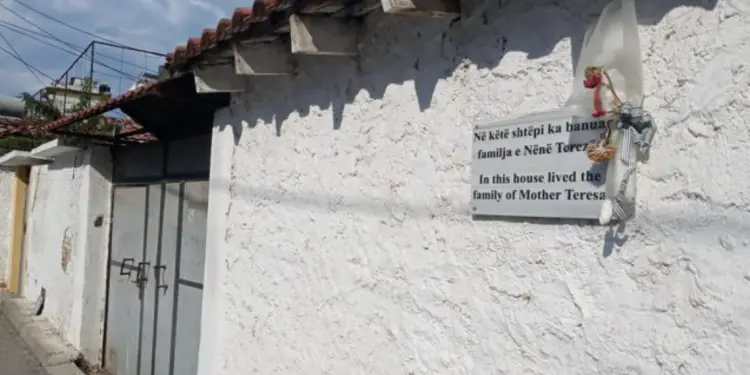
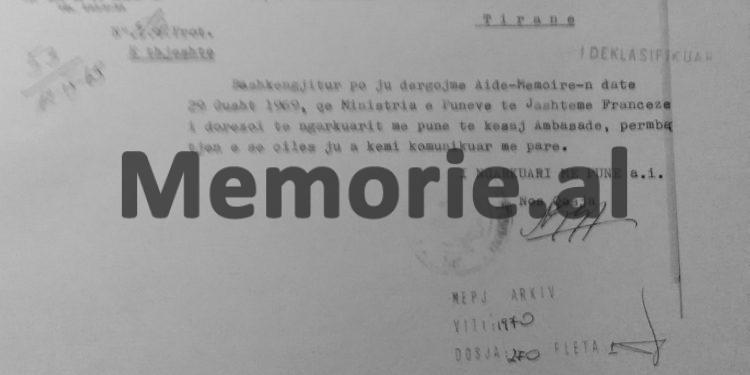
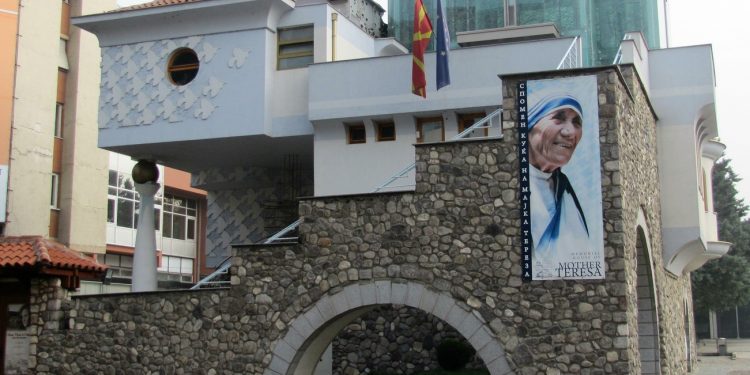
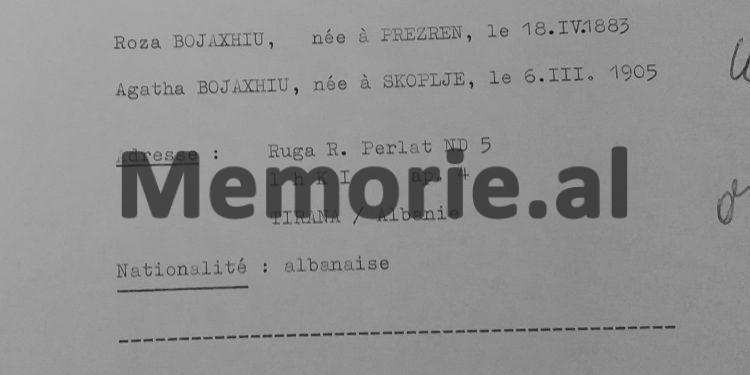
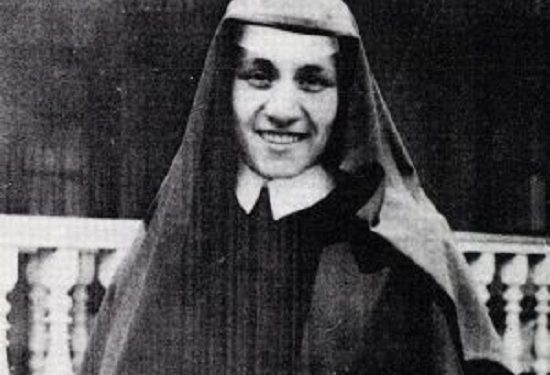
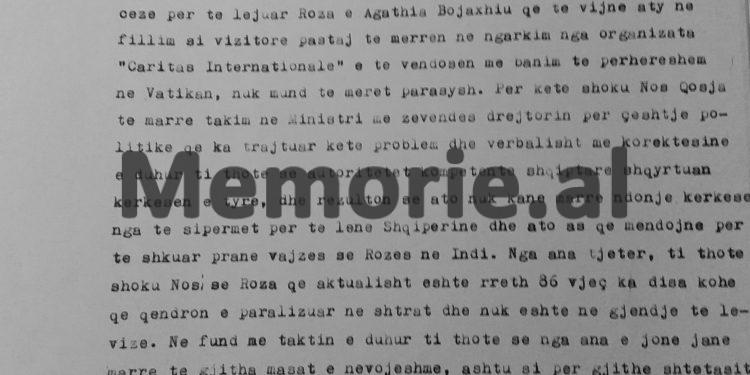
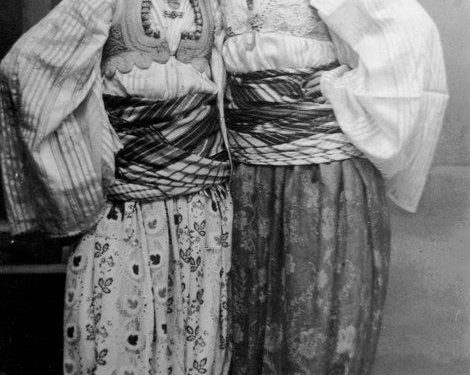
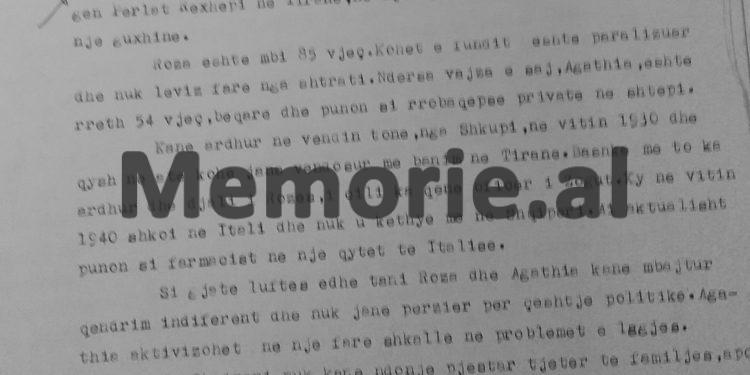

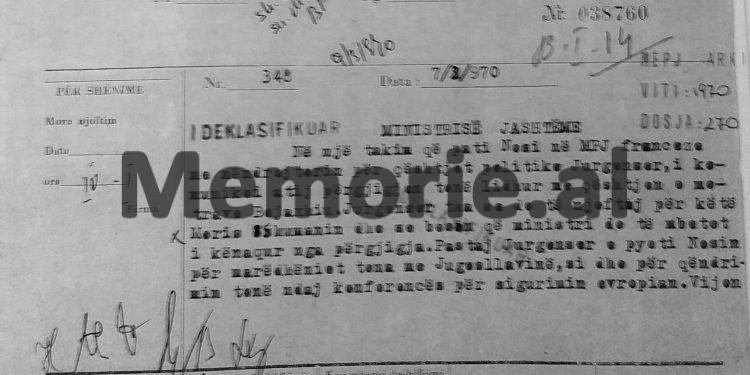
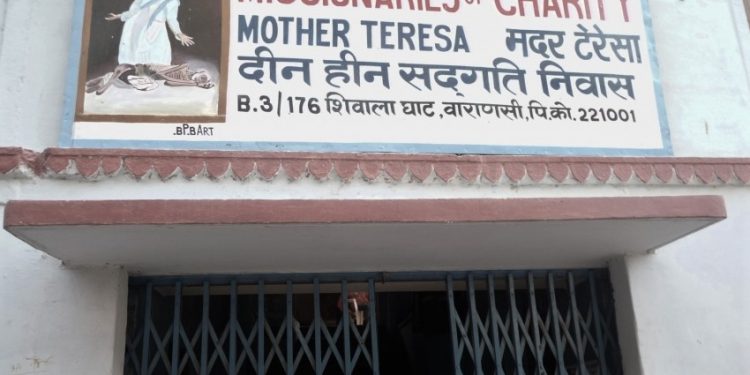
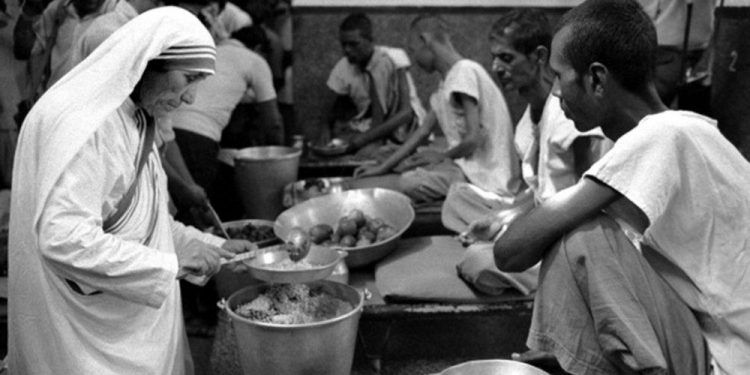
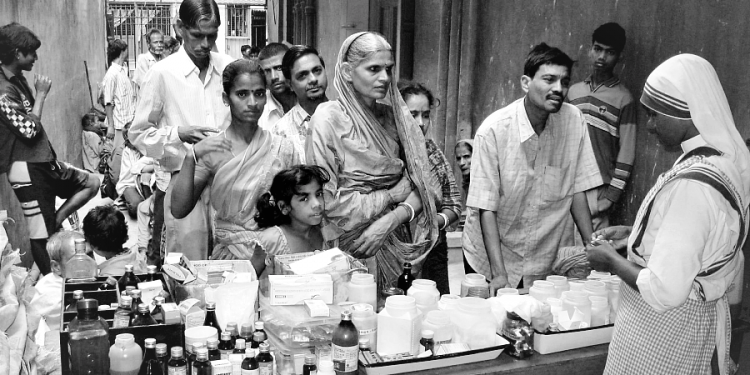

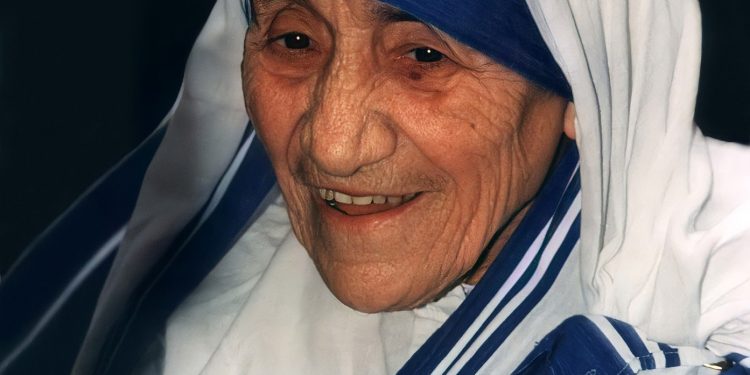
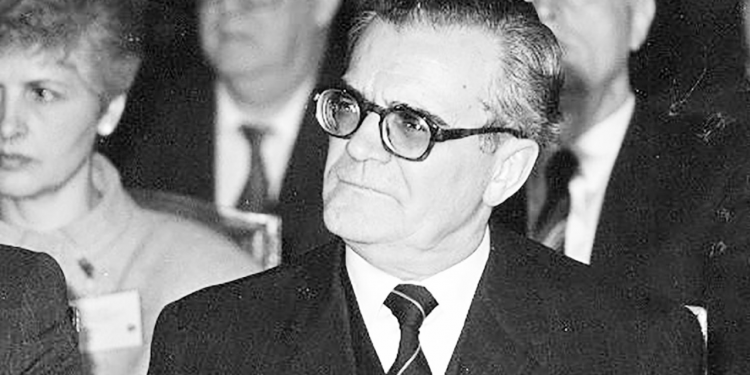
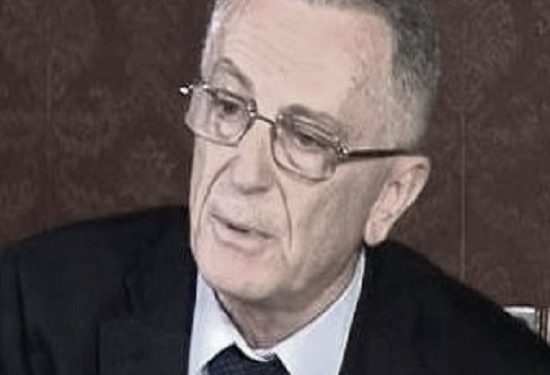
![“The ensemble, led by saxophonist M. Murthi, violinist M. Tare, [with] S. Reka on accordion and piano, [and] saxophonist S. Selmani, were…”/ The unknown history of the “Dajti” orchestra during the communist regime.](https://memorie.al/wp-content/uploads/2026/02/admin-ajax-3-350x250.jpg)
![“In an attempt to rescue one another, 10 workers were poisoned, but besides the brigadier, [another] 6 also died…”/ The secret document of June 11, 1979, is revealed, regarding the deaths of 6 employees at the Metallurgy Plant.](https://memorie.al/wp-content/uploads/2026/02/maxresdefault-350x250.jpg)




